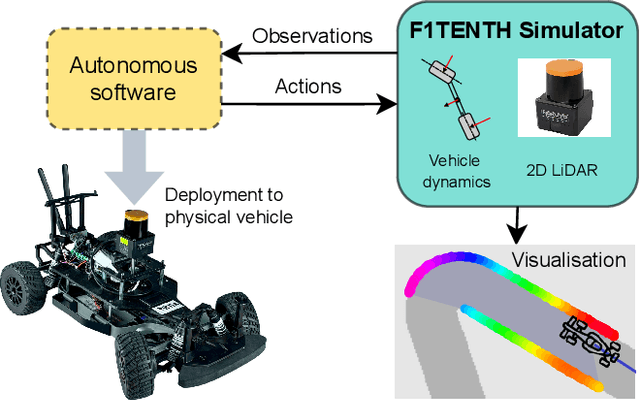Unifying F1TENTH Autonomous Racing: Survey, Methods and Benchmarks
Paper and Code
Feb 28, 2024



The F1TENTH autonomous racing platform, consisting of 1:10 scale RC cars, has evolved into a leading research platform. The many publications and real-world competitions span many domains, from classical path planning to novel learning-based algorithms. Consequently, the field is wide and disjointed, hindering direct comparison of methods and making it difficult to assess the state-of-the-art. Therefore, we aim to unify the field by surveying current approaches, describing common methods and providing benchmark results to facilitate clear comparison and establish a baseline for future work. We survey current work in F1TENTH racing in the classical and learning categories, explaining the different solution approaches. We describe particle filter localisation, trajectory optimisation and tracking, model predictive contouring control (MPCC), follow-the-gap and end-to-end reinforcement learning. We provide an open-source evaluation of benchmark methods and investigate overlooked factors of control frequency and localisation accuracy for classical methods and reward signal and training map for learning methods. The evaluation shows that the optimisation and tracking method achieves the fastest lap times, followed by the MPCC planner. Finally, our work identifies and outlines the relevant research aspects to help motivate future work in the F1TENTH domain.
 Add to Chrome
Add to Chrome Add to Firefox
Add to Firefox Add to Edge
Add to Edge